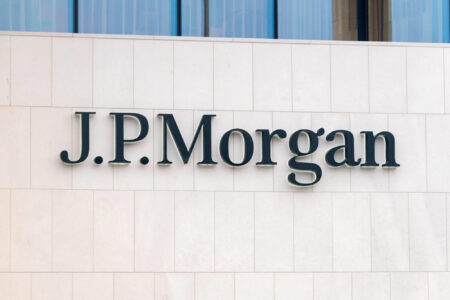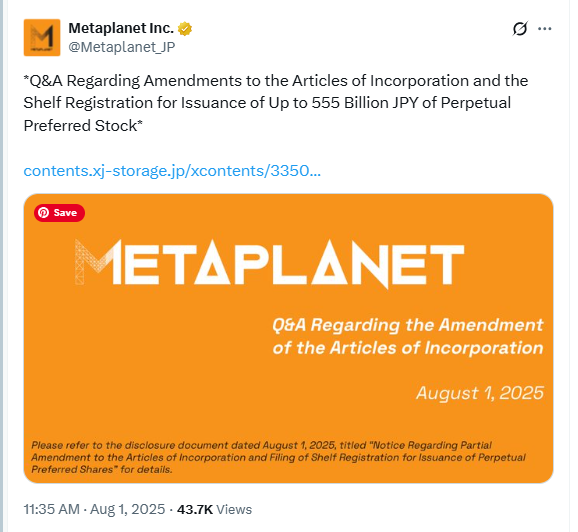The SEC is launching a commission-wide initiative known as “Project Crypto” to modernize its securities regulation scope. The goal is to establish America as the “crypto capital of the world” per President Trump’s ambition.
The U.S. Securities and Exchange Commission (SEC) has announced “Project Crypto,” a new, Commission-wide initiative that is designed to modernize the securities regulations and transform the United States into the global capital of the crypto economy.
The SEC has launched ‘Project Crypto’
Project Crypto was unveiled during a speech at the America First Policy Institute, and the plan lays out a comprehensive agenda for crypto market integration and innovation.
The initiative is led by the U.S. SEC Commissioner, Hester Peirce, and is supported by the newly revitalized Crypto Task Force . It will implement recommendations from the President’s Working Group (PWG) on Digital Asset Markets and build a regulatory framework aimed at legal clarity, capital formation, and investor protection.
The commissioner’s statements emphasized that this approach will prioritize commercial viability, on-chain software development, and open market access.
Many of the SEC’s existing rules are designed for analog, intermediary-driven financial systems and are outdated and ill-suited for today’s digital, decentralized technologies. The project crypto initiative seeks to enable the growth of crypto markets without forcing companies into offshore regulatory avoidance or unnecessary decentralization.
The SEC Chair’s remarks emphasized that “the Commission must revamp its rulebook so that regulatory moats do not hinder progress and competition—from both new entrants and incumbents—to the detriment of Main Street.”
This includes drafting new rules for determining whether crypto assets are securities, commodities, collectibles, or stablecoins, and clarifying the application of the Howey test in assessing investment contracts.
One of the key goals is to eliminate the legal uncertainty that has caused U.S.-based issuers to exclude American investors from token distributions, despite the growing domestic interest in blockchain-powered capital formation.
Addressing structural issues
Tokenized securities are also expected to receive regulatory support under this initiative . The SEC plans to work with firms interested in distributing such assets within the U.S., offering targeted relief where needed to encourage innovation and prevent further migration of crypto services to foreign jurisdictions.
Project Crypto also addresses structural issues around custody, trading, and licensing. The Commission plans to update its custody rules, offering regulatory relief and modernization for both self-custody and third-party custodians, which overturns what was described as the chilling effects of the previous administration’s restrictive frameworks, including SAB 121 and Operation Chokepoint 2.0 .
The initiative envisions a future in which both crypto asset securities and non-security tokens can be traded side-by-side on SEC-regulated platforms.
A major aim of the policy is to encourage the creation of “super-apps,” or platforms that offer comprehensive financial services through a single regulatory touchpoint. These platforms, the SEC suggests, could operate under consolidated frameworks similar to those that exempt banks from duplicative licensing burdens.
Commission staff will also explore updates to legacy regulations, such as Regulation NMS, to accommodate the trading of tokenized securities on-chain. The Commission has reiterated its support for decentralized finance (DeFi) protocols and other on-chain software systems that function without central intermediaries, stating that “both intermediated and disintermediated models must have a place in our financial markets.”
The SEC Chair also emphasized the historical continuity of American financial innovation. “We will not watch from the sidelines,” he said. “We will lead. We will build. And we will ensure that the next chapter of financial innovation is written right here in America.”
The Commission’s proposed rulemakings and public comment periods are expected to begin in the coming months.


